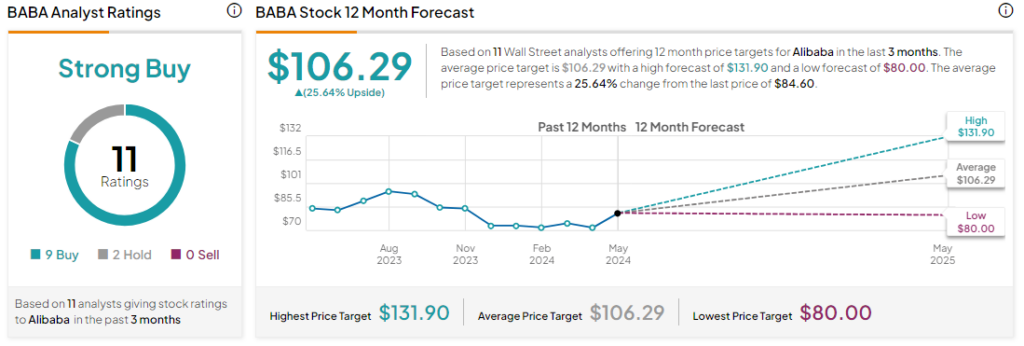Alibaba (NYSE:BABA) declined in pre-market trading after the company’s net income in the quarter ending in March plunged by 86% year-over-year to RMB3.3 billion. The Chinese e-commerce giant reported adjusted diluted earnings of $0.18 per American Depository Share (ADS), a decline of 5% year-over-year in the March quarter that fell short of consensus estimates of $1.42 per share.
However, the company’s revenues increased by 7% year-over-year to RMB221.9 billion ($30.7 billion) exceeding Street estimates of $30.5 billion. BABA’s Taobao and Tmall division, which consists of its e-commerce business, saw revenues of RMB93.2 billion, up by 4% year-over-year.
Last year was a tumultuous year for Alibaba after it went through its largest corporate restructuring and saw significant management changes, including Eddie Wu becoming the company’s CEO in September.
Stock Buybacks and Dividends
Earlier this year, BABA raised its share buyback program by $25 billion through the end of March 2027. In the Fiscal fourth quarter, Alibaba repurchased a total of 524 million ordinary shares, equivalent to 65 million ADSs, valued at $4.8 billion.
The company’s Board of Directors approved a two-part dividend, comprising a regular cash dividend of $0.125 per ordinary share or $1 per ADS in FY24, and a one-time extraordinary cash dividend of $0.0825 per ordinary share or $0.66 per ADS. This dividend will be payable in USD to holders of ordinary shares and ADS holders as of June 13, 2024.
Is BABA a Buy, Sell, or Hold?
Analysts remain bullish about BABA stock, with a Strong Buy consensus rating based on nine Buys and two Holds. Year-to-date, BABA has increased by more than 9%, and the average BABA price target of $106.29 implies an upside potential of 25.6% from current levels.

















